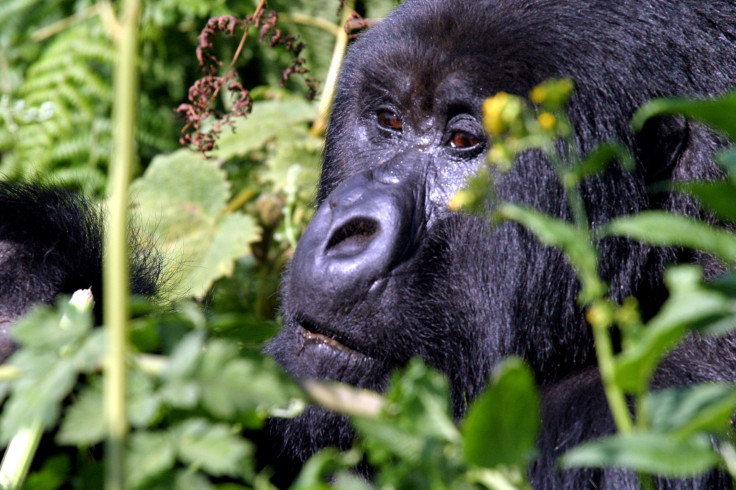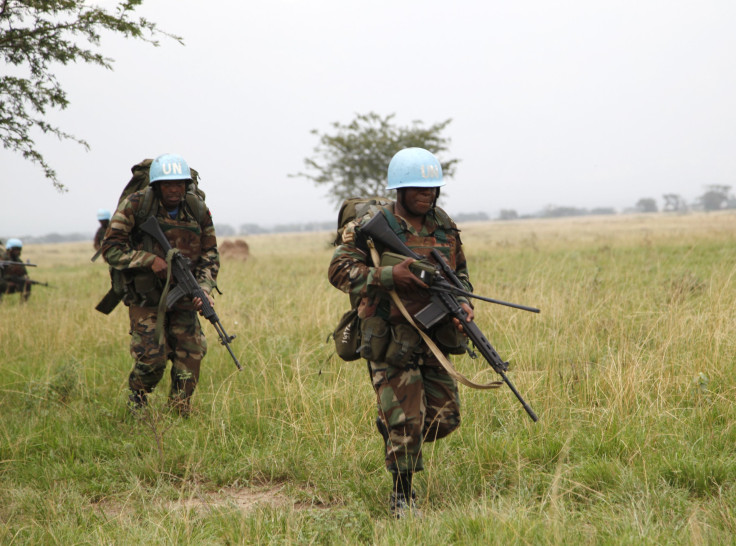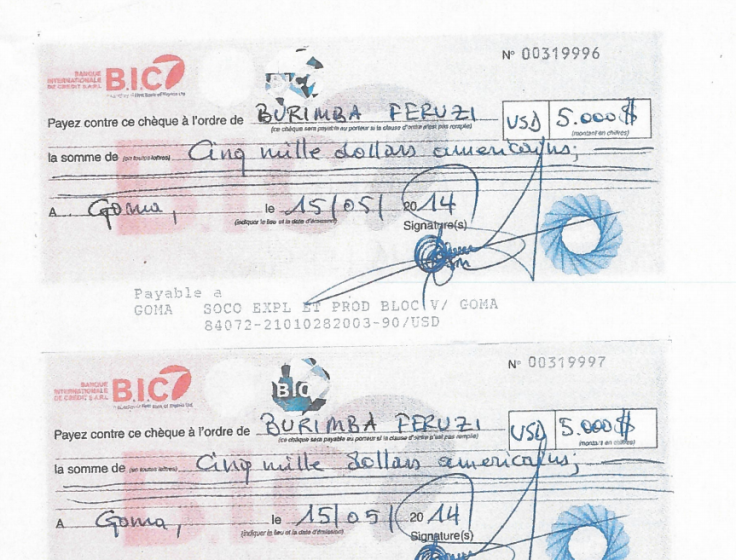Documents Show Soco International Paid Bribes To Officials To Work In Congo's Virunga National Park: Global Witness Report
British oil company Soco has repeatedly denied allegations that it bribed officials to access Virunga National Park in the Democratic Republic of Congo -- but new documents unearthed by watchdog group Global Witness say otherwise.
“These documents show that despite Soco’s repeated denials the company has paid tens of thousands of dollars to an army officer accused of bribing and intimidating those trying to stop oil exploration in one of Africa’s natural treasures,” said Nathaniel Dyer, head of the the Congo team at Global Witness in a Wednesday statement. “These payments may only be the tip of the iceberg.”

For more than two years the company has vehemently denied claims that it was paying off security guards to beat and even kill locals who didn’t want the oil company on the land, or were simply fishing in a lake on its property. Advocates are calling for American and European authorities to investigate the company’s action in the unstable region of eastern Congo.
The park, which is the oldest nature reserve in Africa, was designated as a world heritage site in 1979. And while is is home to a vast number of plant and animal species, including a quarter of the world’s gorillas, it also has become one of the most volatile regions in the world. For decades it was the site of clashes between military and various rebel groups that control territory in the area, and is now home to tens of thousands of people who fled the Rwandan genocide.

Nobody knows exactly how much oil lies within the park’s boundaries. Recent discoveries in neighboring Uganda caught the attention of Soco and other international developers. The French company Total, for instance, was also interested, but in 2013 said it wouldn’t explore the area as a “commitment to protect the current limits” of the park.
Soco announced in June 2014 that it would not be drilling in the park or conduct any operations in world heritage sites, but watchdogs and investors are still concerned about what happened before this decision was made.
According to documents obtained by Global Witness, Soco made direct payments to a Congolese military liason officer, Major Burimba Feruzi, while it was trying to access the area to tap into its massive potential oil reserves. In a 2014 letter, the company also denied breaching any bribery laws and condemned the violence.
During the filming of the documentary “Virunga,” Feruzi was caught on camera trying to bribe a park ranger with $3,000. Global Witness earlier accused him of beating and detaining the company’s opponents, and Human Rights Watch has reported that two local fishermen who were opposed to Soco’s activities were killed. While the company may not have directly ordered the violent actions, the connection to Feruzi may be hard to disprove.

The documents obtained by Global Witness include a series of checks from Soco’s local bank in DRC to Feruzi, along with handwritten receipts. In total, the company made documented $42,250 worth of payments over the course of just two weeks in 2014 -- about 30 years’ worth of the annual salary for someone in Feruzi’s position. An April receipt shows that the money was being used to pay soldiers who were on patrol when two local fishermen were killed.
Between April 24 and May 29 last year, the company made statements to the BBC and its shareholders saying this wasn’t happening, and told Global Witness that “He [Feruzi] hasn’t received money from us… We wouldn’t allow that and the books haven’t revealed that he has.”
Many of Soco’s shareholders, such as Aviva Investors, have called for an investigation into these allegations. In February this year, the Church of England said that “the efforts of the company have not been sufficient.”
“Soco’s half-hearted response to these serious allegations must end here,” said Dyer of Global Witness. “Soco must commit to respecting Virunga’s current boundaries, and it must be held accountable for any past wrongdoing.”
© Copyright IBTimes 2024. All rights reserved.






















